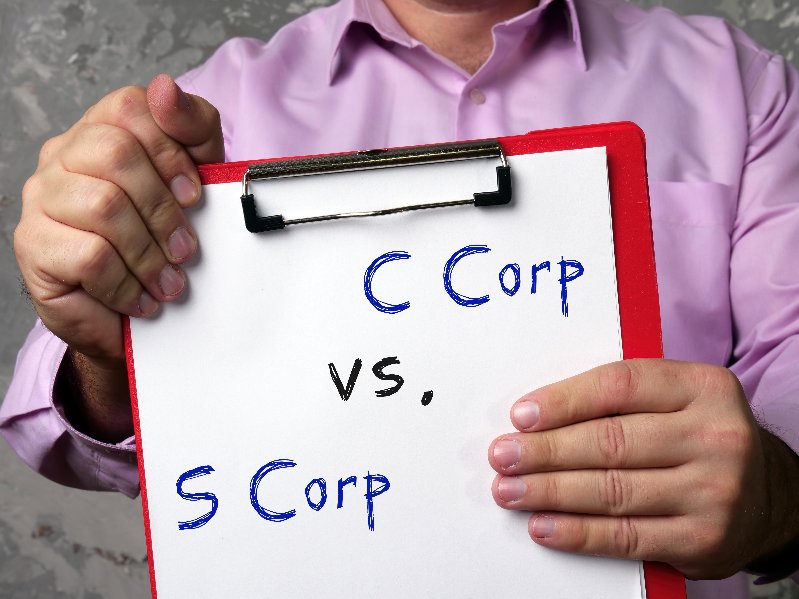There are several ways that a company can be taxed. Based on how a company is taxed is how salaries, employment status, and tax filing procedures are determined.
What is a C-Corp and How Does it Work With Taxes and Employment?
A C-Corporation or C-Corp is named after subchapter “C” of the Internal Revenue Code. Owners of an LLC get to list him or herself as an employee and pay him or herself a salary. C-Corps are the default tax category for corporations and work similarly to S-Corporations.
C-Corps are normally taxed as a separate entity. C-Corps file a corporate tax return and pay all taxes at the corporate level. There are usually no ownership restrictions and may have an unlimited number of shareholders. Unlike S-Corps, a C-Corp can have multiple stock classes, meaning that shareholders can be placed on a hierarchy. Profits can also only be passed to shareholders compared to S-Corps. Certain advantages can be: (1) limited personal liability, (2) may increase your tax advantages, and (3) allows you to establish 401Ks and heath benefits for employees with more ease.
What is an S-Corp and How Does it Work With Taxes and Employment?
An S-Corporation or S-Corp is named after subchapter “S” of the Internal Revenue Code (IRS). An S-Corp exempts the business owner from federal corporate income tax. Instead, income from dividends is taxed only at the individual level under whatever marginal income tax rate applies. The current marginal tax rate ranges from 10%-37%. A key advantage is that the owner of an LLC can list themselves as an employee and pay themselves a salary.
There are certain advantages of having an S-Corp, including: (1) getting pass-through taxation that avoids double taxation; (2) passing corporate losses to owners; (3) getting limited liability for directors, officers, and shareholders; (4) independent life from shareholders; (5) only filing taxes annually instead of quarterly; and (6) enabling a lower self-employment tax for LLC owners.
However, there are certain disadvantages such as: (1) maximum limit of 100 shareholders; (2) strict shareholder requirements that stipulate that only U.S. citizens, permanent residents, certain domestic trusts, estates, and tax-exempt organizations can hold stock; (3) partnerships and corporates are ineligible; (4) an option only for one class of stock; (5) harder to raise equity financing than C-Corps; and (6) more scrutiny from the IRS, such as in salary payments versus dividends balance.
What is a Pass-Through Entity and How Does it Work With Taxes and Employment?
A pass-through entity, also known as a flow-through entity, is a legal entity where income flows through to investors or owners. In this case, the income of the entity is treated as the income of the investors or owners. As a result of this, when a business entity is taxed as a pass-through, an owner of an LLC cannot be an employee of the entity and cannot take a salary. However, an advantage of this type of tax category is that it avoids double taxation; thus, the business owners only pay taxes on their personal income generated through the business and do not have to pay costly corporate taxes.
There are several entity forms that can be taxed as pass-through entities, including: (1) sole proprietorships, (2) partnerships, (3) limited liability companies (LLCs), and (4) S Corporations. However, the most common pair for a pass-through tax entity is a sole proprietorship. This is because it tends to be the default option for most independent contractors or freelancers; pass-through entities registered as sole proprietorships calculate taxes on Schedule C of Form 1040. This is a key difference from partnerships which file taxes through Form 1065, LLCs which fill out Schedule K-1 on Form 1065, and S Corporations who must file both Form 1120S and Schedule E of Form 1040.
For those using an S-Corp, please note that owners are not required to pay SECA tax on their profits but need to pay “reasonable compensation” to be taxed under the Federal Insurance Contributions Act (FICA).


